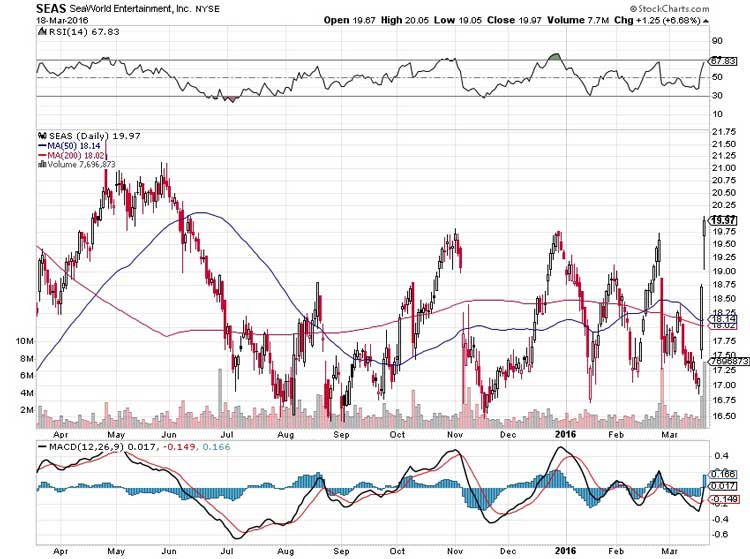It’s a shocking move, no matter how much of it was written on the wall. Under substantial pressure from animal rights organizations and the broad public, SeaWorld Entertainment, Inc. (NYSE:SEAS) announced a major concession — the company will cease its breeding program for captive orcas, and they will no longer be forced to perform crowd-pleasing tricks. That is a paradigm-shifting blow to the marquee brand of SeaWorld, yet it also signifies a change in American culture — one that is much more conscientious of ecological responsibilities.
SeaWorld’s chief executive officer, Joel Manby, expressed as such, noting that through every medium — whether television, film, or the internet — the public has voiced concerns about animal care under human supervision. Manby stated, “It wasn’t worth fighting that. We needed to move where society was moving.”
Indeed, there may come a time when animal-based entertainment is no longer acceptable — and may eventually become as antiquated and barbaric as modernity perceives Roman gladiator fights. SeaWorld joins a growing number of companies that have ceased a significant portion of their live animal tricks, including Ringling Bros. and Barnum & Bailey Circus. Venues popular for animal-based entertainment, like Las Vegas, have near-completely evaporated.

The question on Wall Street, though, is if SeaWorld can accrue goodwill from their public gesture, enough so that it will overcome any loss in revenue? That will be a tricky one. Year-to-date, SEAS stock has so far only broken even. However, SEAS was facing a much bleaker return. Over the past two days, SEAS jumped approximately 15% on higher-than-average volume. Mainstream investors, it would appear, very much like the direction that SeaWorld management is taking.
On the other hand, it’s a fundamental gamble. Annual revenue has been in decline since the full year 2013, snapping a string of positive gains since becoming a publicly traded company. Of course, this coincides with the 2013 release of Blackfish, a documentary of SeaWorld’s practices towards captive orcas that shocked both the public and animal rights advocates. In this case, management is hoping that appeasement will restore SeaWorld to greatness.
Here’s the problem — even at SeaWorld’s highest earnings per share ($0.90 during 2012) against the currently discounted market value, investors would be paying 22 times trailing earnings. That is roughly the median of the global leisure industry. Under the best case scenario, SeaWorld is probably looking at being a middling company. Will investors continue to love SeaWorld on such numbers? Looking at the fact that SEAS stock is still trading inside a horizontal consolidation pattern, it’s not a very convincing argument.
I could be wrong — SeaWorld could find a new way to market itself as a eco-friendly playground. But then again, would you pay premium dollars for a rock concert that featured no rock music?
